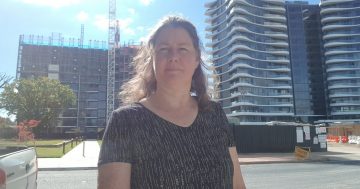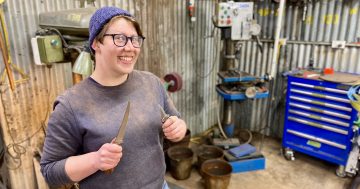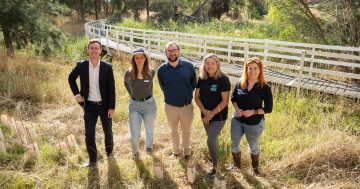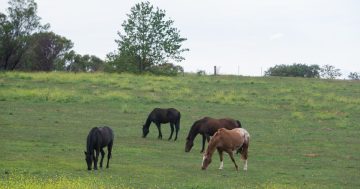
When the NIMBYs are in full flight, they scream “lack of consultation!” What they really mean is that they were not given an opportunity to veto any development in and around their area. A respectful conversation with “the community” in the contemplative stage has been tried occasionally but not often.
Most of the time, Governments go to “the community” when an idea has been fleshed out by “experts’ and is in a form which has some detail about it, like actual location, reasons for such developments, sometimes a rough costing and sometimes paper and electronic paperwork such as layout plans, planning overlays and the like.
Sometimes Governments have fully decided to implement an idea and just want to soften the political fall-out or control the timing of the outcry, to their advantage.
My copy of the Oxford dictionary defines consultation as “Act of consulting, deliberation, conference”. It defines “consult” as “take counsel, seek information, take into consideration”.
It does suggest that consultation is a concept of involvement in the decision-making process; that one takes counsel before or during but not after a decision has been made.
In all my time in public discourse, before and during and after public life, I have rarely seen the process of consultation in the contemplative stage being embraced by both sides in a process. Let me expand.
When I was minister for lots of things, I was advised that the Tharwa Bridge, a heritage four span Allen bridge, almost unique in Australia, had a white ant and wood rot problem and was in danger of falling down. The infestation was where the wooden supports hit the concrete supports and were masked by metal sleeves. I closed the bridge on advice that the Territory would be liable if anyone was killed or hurt because it fell down. This meant great disadvantage to Tharwa residents and those visiting the hamlet because they had another four kilometre round trip via Point Hut Crossing while a solution was found.
So the experts came up with a range of solutions with costings. The dearest was to find timber as close to the original species and replace the bridge exactly as it had been for the previous 100 hundred years. One of the problems with this was that the timber, only sourced in Queensland from old growth trees, needed to age and this would mean at least a twelve to twenty-four-month delay. It also carried a maintenance bill of potentially around $400,000 a year in inspection, pest control, paint, and the like. The next was to knock the bridge down and build a replica in steel and concrete, painted so that the casual observer wouldn’t know the difference. The maintenance bill was only painting and this was about the $40,000 per annum cost.
The last option was to knock it down, say a prayer over its remains, put up an interpretive sign and just use the Point Hut and Tidbinbilla Road as access to the hamlet.
So, armed with these options, the engineers and I went to Tharwa and had a public meeting to discuss the options. Detailed discussions were had and I left thinking that the burghers of Tharwa were happy with being involved at the contemplative stage even though they were, rightly, unhappy about the delay to reopen the bridge.
I visited the village another twice before taking a paper to Cabinet.
There was massive outrage about our inability to re-open the bridge, about our intention to just give them a replica bridge. This went on for months from a campaign of disinformation. I was accused of “lack of consultation” even though they were vitally involved in the formation of the paper to go to Cabinet. They were critical to my understanding of the impact of picking an option.
They brought to the “consultation” a closed mindset. They were not prepared to countenance anything other than what they thought was the go. In the face of massive expense to the taxpayer, they wanted the expensive option and they wanted it in a hurry. Consultation in this example was a one-way street.
The second example I know of relates to the suggestion from the Government that we could build another suburb in Tuggeranong next to Greenway. The experts came to town and held community meetings replete with pretty diagrams and demographic data. But, ”the community” was having none of it. Again, “lack of consultation” was trotted out. Actually, whilst the idea was not going to fly, the consultation was OK. A social media campaign was mounted, submissions sent in, the majority of which were against the proposal on environmental grounds around habitat protection and river life; and the Government dropped the idea. In this instance, an idea, not fully formed, was floated, “the community” asked for input, “the community’s” involvement respected and taken into account and the experts and pollies listened.
Back in about 1998 or 1999 or so, the Government decided to build a prison. It was going to go into partnership in a public-private partnership with a tenderer to build a privately operated prison in the ACT. Whilst the consultation around this philosophy was not bad, driven by a committee of the Assembly, the choice of location was not. It was a decision of Government that it be built next to the Therapeutic Goods Administration in Symonston. The decision had been made and the consultation was about telling “the community” where it was going and why. It was only after much angst that his decision was changed. I know because I was integrally involved in the campaign and orchestrated a lot of it.
Genuine consultation in the contemplative stage is a rare event. Genuine involvement is rarer. Self-interest is always the horse to back if you want a winner. More often than not, a consultation process of information sharing is really a forum to belt the bureaucrats or consultants charged with running the consultation process. Usually, it is the “No Way José” merchants who, blinded by their own self-interest are so narrow-minded and closed eyed, that they can’t look at a proposal and see if it can be made to work. The just say NO! and frequently, the pollies decide that they know there will be pushback but push on regardless.
Finally, this notion of “community” is a lot of rot as well. A city like Canberra with its hundreds of suburbs is not like a country village. It is not a collective of common ideals and visions and hopes and expectations. It is a collection of individuals who live out their lives with little or no involvement around them. Just look at the attendance of a Community Council? Thirty people is a good roll up at their monthly meetings. In the case of Tuggeranong, this thirty is out of a population of 95,000 people! And this idea of a “community” opposing residential developments in the suburbs is garbage as well. Most of the agitators have never met each other until the spectre of public housing bogans invading their precious suburbs emerges.
Communities gather around a common interest. There are real “communities” in sporting activities, hobbies, activities such as theatre and music but not around everyday suburban life. It’s just a furphy and it irritates me that this sense of “community” is trotted out whenever people are wanting to oppose something. How about looking at the evidence and then giving a reasoned response. It is incumbent on the Government to lead in this regard but it is also incumbent on the good burghers of Canberra to go into this process honestly.
Sadly, neither has occurred often enough!





















